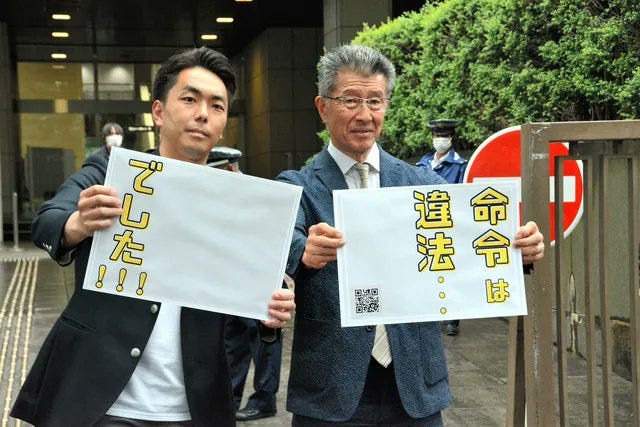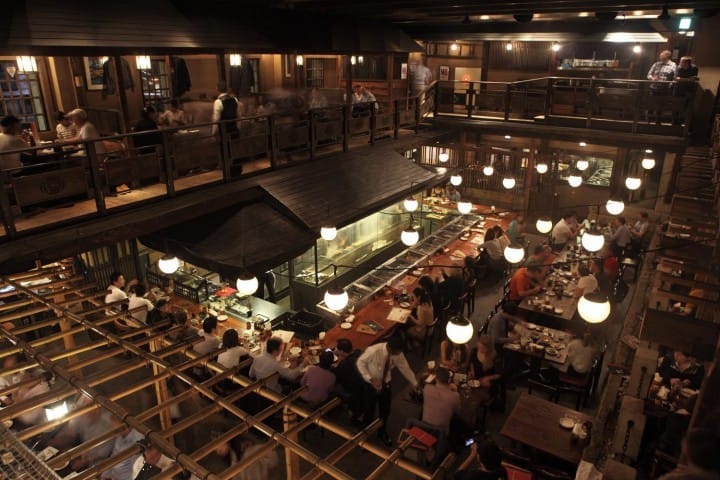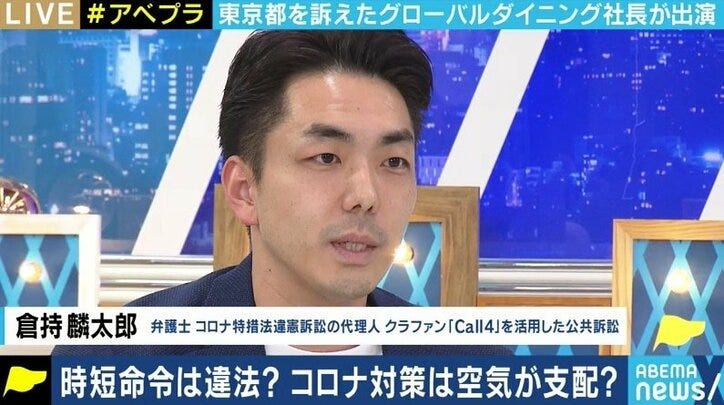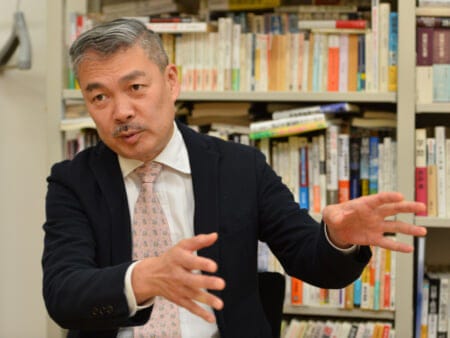Tokyo's restaurant restrictions are found to be illegal.
In addition to calling for masks at all times, Japanese prefectural governors have repeatedly and pointlessly told bars and restaurants to shorten hours in response to outbreaks of PCR positive tests. This has inevitably done little to reduce the number of infections but has done a lot to reduce the number of restaurants.
And nobody has been happier bullying restaurateurs than Yuriko Koike, the governor of Tokyo and friend of George Soros.
So it was nice to see the Wicked Witch of the East dealt a blow in court this week [all text in italics below is taken from the article here]
A Japanese court ruled Monday that an order by the Tokyo metropolitan government for a restaurant chain operator to reduce business hours amid the coronavirus pandemic was illegal, finding the case did not fulfill certain conditions.
And here are lawyer Rintaro Kuramochi (left) and Global Dining president Kozo Hasegawa outside the court after the decision. You can tell they’re the good guys because they aren’t wearing masks. Their signs say “The order was illegal.”
But the Tokyo District Court rejected a claim by Global-Dining Inc. that imposing blanket restrictions without offering evidence that eateries are a source of infections violates the freedom of business guaranteed under the Constitution.
And if you want to see a perfect example of a failed and retracted attempt at media spin, here you are courtesy of Kyodo News.
Before at 15:38: “Tokyo’s shorter hours order found to be ‘constitutional”’
After at 15:44: “Tokyo’s shorter hours order found to be ‘illegal”’
Personally, I think the order was unconstitutional. The Japanese authorities were rather naughty in the 30’s and 40’s, so General Douglas MacArthur took their toys away and replaced them with a constitution that strictly limits government powers, mostly famously the power to make war. Needless to say, the current government badly wants to revise it. Anyway, back to the case.
The company, which runs dozens of restaurants, including a Japanese-style pub famous for its scene in Quentin Tarantino's film "Kill Bill," immediately appealed the ruling.
That’ll be Gonpachi. Thoroughly recommended if you’re ever in Tokyo.
Following last year's revision to a coronavirus special measures law, prefectures could order restaurants and other businesses to cut operating hours during a state of emergency if they defied the initial request without a valid reason.
One of Global Dining’s stated reasons for operating as normal was “maintaining employment” of its staff. But Governor Koike apparently didn’t think this was valid.
The court found that the order issued in March last year to Global-Dining did not meet the requirement under the law that such an order must be issued only when "especially needed."
It’s been clear since spring 2020 that none of the Covid measures in Japan have been “especially needed” either. But I digress.
Global-Dining has said it took sufficient precautionary measures to prevent infections among its staff and customers while adding that the order took aim at the company, which had publicly voiced its intention to disobey the request to cut operating hours.
Hasegawa and Kuramochi have regularly appeared in the media to bluntly criticise Japan’s Covid restrictions, which Kuromochi worries are being set in accordance with the “air” (i.e., the social atmosphere) not the law or constitution.
Restaurants operated by the company were among 2,000 establishments that did not comply with a request to close by 8 p.m. under a COVID-19 state of emergency issued in January 2021 in the Tokyo area and other prefectures, according to the plaintiff's side.
For context, there are about 190,000 establishments in Metropolitan Tokyo.
Of the 2,000, the Tokyo metropolitan government ordered 27, of which 26 were Global-Dining outlets, to close by 8 p.m. until the emergency declaration was lifted.
Does that not seem a little spiteful of Yuriko? Another article in Japanese quotes the judge saying, “From the viewpoint of fairness, (the order) cannot be reasonably explained.” But he didn’t conclude Global Dining were picked on to make an example of them.
In handing down the ruling, Presiding Judge Norihiro Matsuda said, "It is difficult to acknowledge that (Global-Dining) increased the risk of community spread of infections."
He also said the order had "only a slight effect on controlling infections" as it was issued only a few days before the state of emergency was lifted.
Four days before to be exact. One of Global Dining’s expert witnesses, Kyoto University professor Satoshi Fujji (pictured below), estimated that shortening hours at 26 restaurants for 4 days prevented 0.081 infections.
Prof Fujii also wasn’t impressed when the Tokyo Government used a document produced by the national government’s Coronavirus Response Experts Committee as evidence that reduced mobility after 21:00 in Tokyo had a “beneficial” effect on Covid cases. After reanalysing the data and finding the effect wasn’t statistically significant, he said “it is fraudulent to produce a document that hides the lack of significance in order to claim that reduced mobility decreases infections.”

The court, however, denied a claim by the company alleging negligence by Tokyo Gov. Yuriko Koike, dismissing their damages claim of 104 yen ($0.8). As part of its reasoning, the court said the metropolitan government had allowed disobedient companies to explain their positions.
The claim of 104 yen was based on 1 yen for each day per restaurant: 26 x 4 = 104. Global Dining openly said they didn’t want Tokyo taxpayers to cough up any more cash unnecessarily. I wish them luck with their appeal.
I’ll leave the last words to Prof Fujii: “Many people naively assume that if you shorten bar and restaurant operating hours, then infections go down, but that’s been statistically repudiated. It’s extremely despicable of the Tokyo government to continue taking away people’s freedom without presenting any clear basis for it.”












